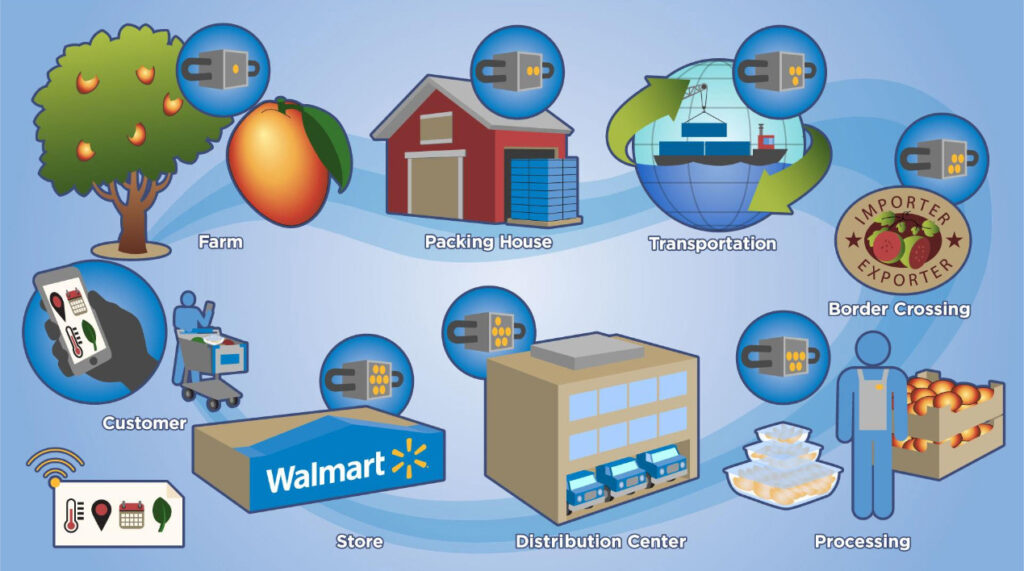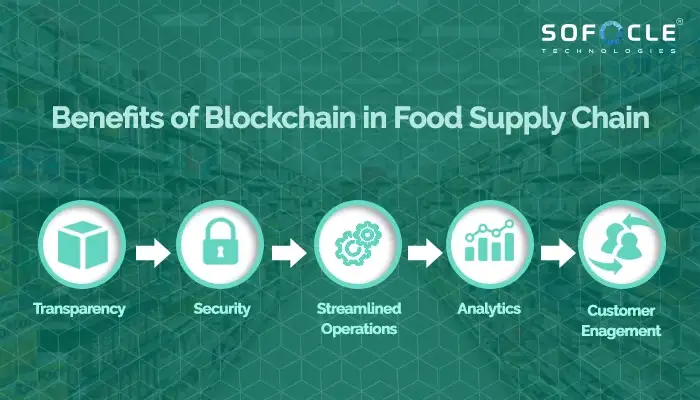BLOCKCHAIN IMPROVES FOOD TRACEABILITY, SAFEGUARDING CONSUMERS AND SAVING MONEY
In the brave new world of blockchain traceability, simply scanning a QR code could be enough for consumers to be able to trace their food all the way back to the farm where it was produced.
Blockchain in food supply chains is becoming increasingly popular, with many major food companies, including Nestle and Unilever, and retailers, including Carrefour, along with firms at other stages of the supply chain, having implemented blockchain projects in recent years.
According to Authena, a Swiss software company, firms previously traced food using paper records or specialist software, but these methods rely on accurate and honest information being provided by all companies along the supply chain. If at any point inaccurate information is provided, food can no longer be traced back correctly.
With blockchain, traceability records are, Authena said, “immutable”, meaning that it is impossible for them to be interfered with.
“Once an agent in the supply chain enters information into a shared blockchain-based system, nobody can change it. Transactions cannot be hidden or altered as any attempted change alerts all other users in the system,” the company said in an online briefing document.
Because the technology facilitates traceability across all stages of the food industry supply chain, it allows what is known as first-mile traceability through to last-mile traceability.

When food can be properly traced, it ensures that, for example, organic certifications that foodstuffs are provided with are accurate.
Other types of certifications are also made more reliable, so consumers have greater confidence that what they are buying is what it is supposed to be.
Blockchain traceability can also help to reduce contamination of food, an issue that currently is blamed for hundreds of thousands of deaths a year around the world. Contamination is also a cause of expensive food recalls, so reducing it saves producers and retailers money.
Another benefit of using blockchain in food supply chains is that it ensures that products are within their shelf life by the time they reach consumers.
Without the technology, companies involved in the food supply chain typically maintain records one step back from where they obtained the goods, Authena said, but with blockchain, as all participants share information with everyone else, so there are multiple copies of records and food can be more easily traced.
“Blockchain … generates a transparent environment which, critically, doesn’t rely on trust,” Authena said. “Food supply chain firms can do business with producers they know nothing about, so long as they agree to join the blockchain network. There is no need for a centralized authority to mediate between parties.”

Blockchain is likely to become more widely adopted in food supply chains as regulators, such as the US Food and Drug Administration (FDA), introduce additional traceability requirements. For example, in November the FDA introduced stricter record-keeping rules for certain types of foods.
Another company involved in blockchain food traceability is IBM, the United States IT giant, which has created IBM Food Trust, which is described as “a collaborative network” of companies in the food supply chain.
These range from growers to processors, wholesalers, distributors, manufacturers and retailers, as well as other types of food industry operators.
Based around IBM Blockchain, “this solution connects participants through a permissioned, immutable and shared record of food provenance, transaction data, processing details and more,” the company said in an online briefing document.
IBM cited a string of benefits that could come from being part of the network, among them increased supply chain efficiency, greater trust in brands and improved regulatory compliance.
So, with multiple advantages and increased requirements from regulators, expect blockchain traceability to become ever more common in the food sector in the years to come.
Join us at SIAL Paris as exhibitor Join us at SIAL Paris as visitor
